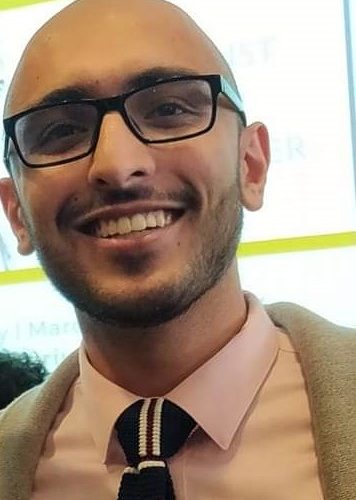1. Please tell us about yourself.
Age: 23
Undergrad Institution: McMaster University Undergrad Major: Health Sciences
Hometown: Toronto, Ontario
2. What first made you want to go to law school?
My interest in practicing law actually arose from reading legal fiction (primary John Grisham) at an early age. Despite exploring other fields throughout my high school and undergraduate career, I was always drawn to the law because of my fascination with how we use the law to order our society in a way that reflects our collective notions of morality and fairness. From a practical perspective, I saw the practice of law as an opportunity to redress salient issues at both an individual and institutional level, and to advocate for those who cannot advocate for themselves.
3. Why did you choose your law school?
I chose Harvard Law School because of the sheer breadth of opportunities afforded at this institution. I wanted to put myself in a position to engage with the most eminent scholars, and most exceptional students in the legal field as I began to cultivate a career for myself. Even beyond graduation, I understood that Harvard’s extraordinarily robust alumni network, and institutional cache would provide me with amazing opportunities within the legal profession and beyond.
4. What is one thing you wish you knew about law school or the admissions process ahead of time?
Regarding the admissions process, I think it’s important to understand how greatly law schools tend to value diversity, particularly diversity of experience. The majority of my classmates come from vastly different backgrounds in terms of culture, education, and work experience and I think it is important for a successful candidate to be very cognizant of what makes them unique, and how they can translate that set of skills and experiences to success in law school. Regarding law school itself, I wish I understood that, precisely because of this diversity of backgrounds, most students were just as new to the legal profession as I was, and were going through a very similar process of acclimation. I think many students get intimidated by the sheer number of new concepts and ideas that are introduced in law school, so it is important to remember that your classmates are largely in the same boat.
5. What student organizations or activities are you involved in?
I am currently involved with the Harvard Immigration Project (which represents low income clients navigating various aspects of the immigration system), the Harvard Prison Legal Assistance Project (assisting incarcerated clients), Harvard Defenders (providing free representation in criminal show cause hearings), and the Harvard Law School Mock Trial Association.
6. Discuss any exciting jobs or internships you’ve had while in law school.
As a 1L, I have not have not yet had the opportunity to work or intern while at law school. However, I am very excited about the chance to participate in the summer internship program at Robins Kaplan LLP this summer, which is noted for its exceptional training program for trial advocacy.
7. What do you like to do in your spare time?
I am a passionate about storytelling of all kinds, including literature, theatre, and film. I enjoy reading broadly on a variety of topics including politics, human psychology, history, and philosophy. I am also an avid sports fan (go Patriots!) and enjoy watching or playing sports with my peers.
8. What is your dream career?
There are two aspects to my dream career. First, I would love to have the opportunity to litigate, in particular as a trial lawyer representing clients of different kinds in complex legal matters. In particular I am interested in working in the fields of criminal defense and antitrust, while maintaining a robust pro bono practice which consists of representing indigent clients in criminal or immigration matters. I am especially passionate about serving underrepresented communities such as the South Asian and Muslim American communities, which I am a part of. Secondly, I would love to go into academia, specifically to teach classes, possibly as an adjunct or clinical professor.
